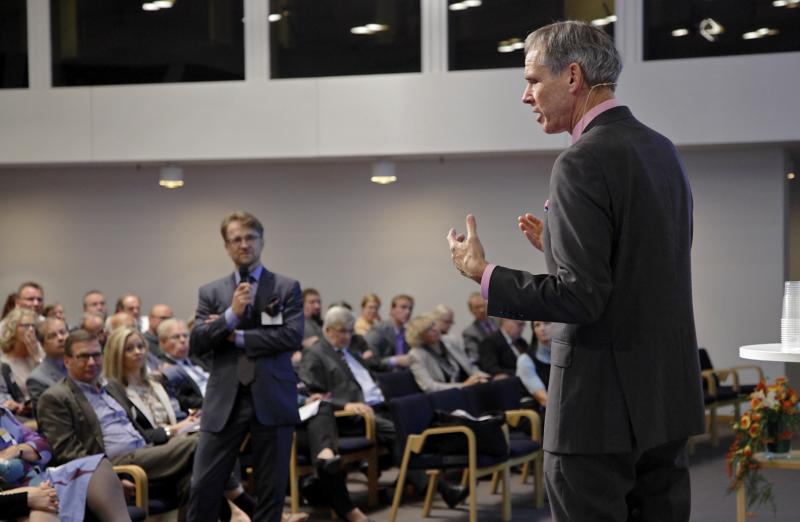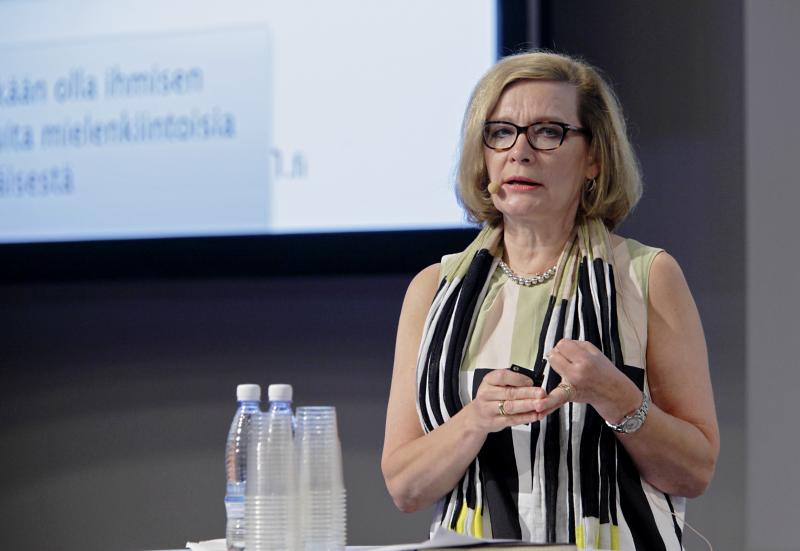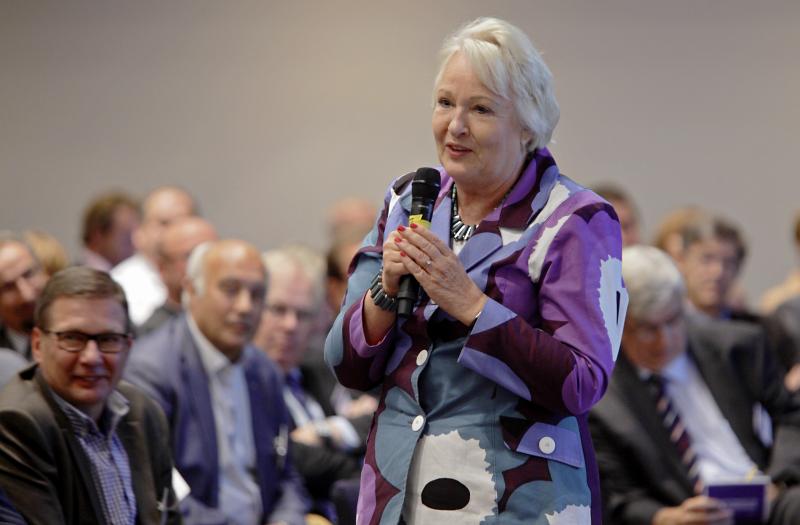Some 600 health sector decision-makers gathered to hear a bold prediction about the future of Finnish healthcare at a seminar held by Sitra and Kela.
Smartphones and new technology will render hospitals unnecessary, turn healthcare into a collaboration between the patient and the doctor and enable a new kind of thorough healthcare which looks at individual patients instead of the population. These are the views of Eric Topol, a leading American researcher and pioneer of electronic healthcare, who shared his thoughts at the high-level conference held in Finlandia Hall, Helsinki (3 September), organised by Sitra and the Finnish Social Insurance Institution, Kela.
“Medicine is about to face the greatest revolution in its history, as it begins to benefit from digitalisation on an extensive scale. It is no longer a question of if the revolution will take place, but where and when,” Topol said.
According to Topol’s vision, we will not need as many hospitals and doctors in the future as we need today. With patients monitoring their health with the help for example of a smartphone, doctors will mostly act as consultants, partners and interpreters of the patient’s data. Patients will own their health information and be able to participate actively in their personal healthcare. They will also take care of more routine healthcare procedures which will shorten patient queues and free up medical professionals’ time for tasks which require real expertise. The more is known about the patient’s genes, the better the care can be tailored for their needs.
“And most importantly, this improves the success of treatments,” Topol adds. “Studies already indicate that patients who monitor and treat their high blood pressure, for example, receive better results than patients in traditional medical care.” Topol also showed the seminar audience how one can use smartphone add-ons to measure blood pressure, monitor blood sugar levels, diagnose an ear infection, perform a sleep polygraph examination or record an ECG, without the need for large, expensive examination equipment.
Minister of Social Affairs and Health Paula Risikko agreed with Topol on the need to discover new healthcare solutions and on increasing self-management of health in the future: “How many ministers have you heard talking about health as a means to close the sustainability gap? Not a single one, even if the matter is extremely important.
“If we do not find means to solve this bundle of diseases we are burdened with, we will not survive. It is necessary that clients participate more in their own treatment. Some patients will certainly be unable to do so, and we must take care of them,” Risikko said at the seminar.
Mikko Kosonen, President of Sitra, called for a thorough renovation of the healthcare sector, reaching from treatment protocols to funding and organisation. “For a long time, Finnish healthcare showed the world an example of cost-efficiency and social justice,” he said during the seminar’s opening speech.
“The past few years have seen a rapid decay in these strengths. We are sliding towards the infamous, unequal American model where quick and proper treatment is only available only to those who are employed and insured. Our tax-funded public healthcare is leaking into the private sector – and this is not caused by the private sector, but by a structural defect in our system.”
Sitra is currently working on electronic healthcare solutions, testing new self-care models across Finland. Sitra published its model for reorganising healthcare financing in 2010.
“Our duty is to think about Finland’s future – this theme is at the very core of it, from the perspective of both well-being and the economy. We have many notions about the directions in which healthcare should be developed in the future, but for now it is important for us to turn over a new leaf and open a broad discussion about the development of Finnish healthcare,” Kosonen concluded.
Click here to read an interview with Eric Topol.

Dr Eric Topol: “The Creative Destruction of Medicine”

Finnish government minister Paula Risikko

Liisa Hyssälä, Director General of KELA





Recommended